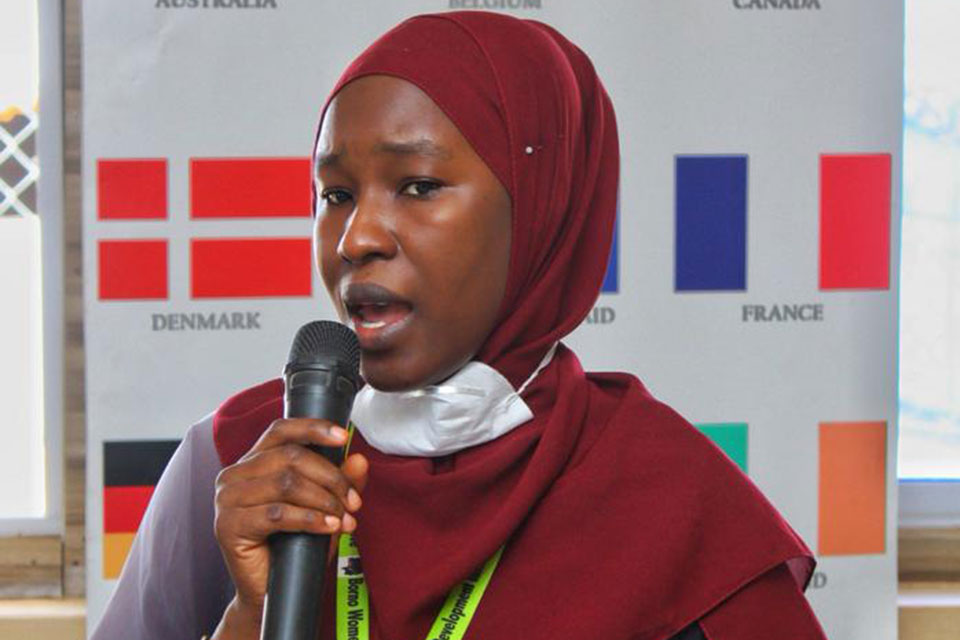From where I stand: “It won’t be easy… reach out, grab the baton and keep running forward”
Fatima Askira is a young Nigerian leader, activist and peacebuilder born and raised in the epicenter of the Boko Haram insurgency. As the founder of Borno Women Development Initiative (Nigeria), she empowers women and girls to promote peace in communities affected by violent extremism.Date:

Like all of us living in Maiduguri, in the north-east of Nigeria, my life was changed when Boko Haram, a violent jihadi group, started an armed rebellion against the government of Nigeria in the 1990s.
I had just finished university in 2012 when the attacks intensified, and people began to be forced from their homes. We have always been a peaceful society and I was deeply affected by the stories I was hearing. I travelled to where families were sheltering in doorways or government buildings, and the stories they told me were heartbreaking. These women had run for their lives in whatever they were wearing at that moment. Being properly attired is very important for women in our culture, so I started collecting and distributing clothes.
Once I started, I couldn’t stop. At first, everything I did was just about responding to immediate needs - how to find this woman shelter or this family some food. Over time I started expanding into more formal assistance programmes and launched the Borno Women Development Initiative in 2014, an NGO that represents and assists women and young people affected by conflict. Our staff has since grown to over 150 people.
Now, we’re in a more stable phase of the insurgency. I’ve shifted my focus to empowering women to become active participants in the peacebuilding process. Whenever I am asked to participate in any peacebuilding policy or intervention, I ask, “where are the women?” Even though we are profoundly impacted by violent extremism, our voices and experiences are rarely heard.
Our rehabilitation and reintegration work is vital to this process. Many of the women we work with have been forcibly abducted or held hostage. Others have willingly gone over to the rebels and believe that they’re participating in a just cause. For many of these women it is not easy to leave. The stigma they face when returning to their communities is very real.
I’m trying to create a space where women can express their fears and reservations. All of these women need to be understood and listened to as individuals who have suffered violence and trauma.
This work is hard and exhausting. As a woman, I’m constantly criticized for being too active and too visible. Or being told that I shouldn’t travel alone or become too loud. I have received threats on social media, saying that what I am doing is corroding traditional values.
Yet, when I am focused on the work, I can block out the stereotyping and name-calling. Lots of younger women have told me that they look to me for inspiration, so when I’m tired or demoralized, I tell myself that I have to keep going so I can pass the baton on to them. They have the power to change the future for women in Nigeria. I want to tell them that it won’t be easy, but they have to reach out, grab the baton and keep running forward.”
Fatima Askira is the founder of Borno Women Development Initiative (Nigeria), an organization that designs and implements education and empowerment programmes for women impacted by the Boko Haram insurgency. UN Women spoke with Askira on the occasion of the 20th anniversary of UN Security Council resolution 1325, which continues to shape the agenda for women, peace and security, to include women and gender analysis in all aspects of conflict prevention, peace and reconstruction. Critical to the agenda, are women peace leaders gaining and exercising decision-making power.